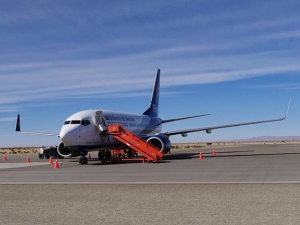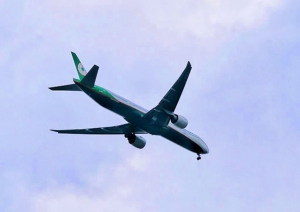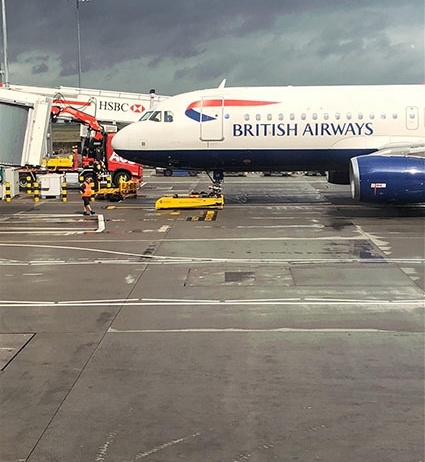The world will reopen!
Given the levels of uncertainty across the globe and the absence of true global leadership to manage and contain Covid 19, I now doubt we will reach “new normal” for some time. What we are experiencing is a series of transitional waves creating reversals and successes. These waves will impact countries at different times and with differing levels of intensity creating unpredictable outcomes. But please don’t let any of this stop you planning your next journey. The world will reopen!
Boldly go – but carefully!
Boldly go – but carefully! On July 14th Reuters reported: “The European Union has decided to drop Serbia and Montenegro from its safe list of countries from which non-essential travel is allowed, … because of spreading infection… The updated list will be published in the coming hours or days. The listing is only a recommendation; not all of the 27 EU member countries are applying its provisions”. This well-intentioned action will have created countless disruptions. The UK Government’s action on travellers returning from Spain illustrates how quickly these reversals may be made.
Consequently, we all need to be aware that our plans can be potentially disrupted by multiple actions that may initially seem irrelevant to our own situation! Understanding this will of itself help mitigate the impact. So be aware:
Airline priorities
Airline priorities may get in your way. As airlines claw their way up the cliff face to stabilise their balance sheets schedule changes, cancellations and aircraft substitutions will occur. Shrinking of the fleet and headcount cuts will reduce the number of flights available. On the 9th of July, United Airlines said ” it could furlough as many as 36,000 workers, or nearly 40 percent of its staff, starting October 1st,” if travel remained weak and if enough employees did not accept a buyout and early retirement”.
Government imperatives
Government imperatives will impact on border security, self-isolation, and immigration controls … Even if your Government say XYZ is safe to visit they may not want you! Physical distancing will impact the number of people allowed into restaurants, museums, hotels, and stores. Government guidance will also determine whether your travel insurance is valid.
IATA has declared: “One of the biggest blockers to industry recovery is quarantine. Some 85% of travellers reported concern for being quarantined while traveling, a similar level of concern to those reporting general concern for catching the virus when traveling (84%). And, among the measures that travellers were willing to take in adapting to travel during or after the pandemic, only 17% reported that they were will willing to undergo quarantine”.
Economic realities
Economic realities will affect the value of your currency and the tourist tax you may – or may not! – have to pay. They will also determine the number of airlines, travel agents, tour companies, aviation suppliers, hotels and countless other businesses that stay in business.
Delays in getting refunds have no doubt had a negative impact on many customers. The Guardian newspaper raised concerns (4thJuly) over the way some companies had handled refunds: “Travellers whose trips are cancelled because of the coronavirus pandemic face a summer of stress as companies rewrite the rules to avoid refunding them. Thousands of holidaymakers have been struggling since March to get their money back, and the problem is likely to worsen now the government has eased the ban on travelling abroad.
Summer bargains advertised by travel firms could be scuppered if new lockdowns are imposed in the UK or overseas. The law entitles customers to full refunds when a flight or holiday is cancelled, but many are being forced to accept vouchers or charged large processing fees”
Airport Agony

Airport Agony The European airport trade lobby reported passenger traffic in June 2020 compared to a year ago down by 93%. ACI EUROPE pointed to the unaligned lifting of blanket travel restrictions. Noting that EU and Schengen states failed to effectively coordinate and align travel policies, ACI saw this as “not conducive to restoring confidence in travel and tourism in the middle of the peak Summer season.”
“The financial situation of airports is not significantly improving – with some even making more losses now compared to their situation prior to the restart. The peak Summer season normally accounts for a large share of annual revenues and temporary unemployment schemes are coming to an end in many EU States – not to mention fierce airline pressure on airport charges – liquidity will remain an on-going concern through the winter”.
The unexpected
The unexpected Weather Forecasts have become less accurate during the COVID-19 pandemic, due to the reduction in commercial flights, according to new research led by Lancaster University. A new study finds the world lost 50-75% of its aircraft weather observations between March and May of this year when many flights were grounded due to the pandemic.
“Weather forecasts are an essential part of daily life, but inaccurate forecasts can also impact the economy”, according to Dr Ying Chen, a Senior Research Associate at the Lancaster Environment Centre and lead author of the new study.
“The accuracy of weather forecasts can impact agriculture as well as the energy sector and stability of the electrical grid. Wind turbines rely on accurate forecasts of wind-speed and energy companies depend on temperature forecasts to predict what the energy load will be each day as people crank up their air conditioning”.
Traveller preferences and concerns
Traveller preferences and concerns are changing. Trade offs are necessary around boldly go – but carefully. In early July IATA noted that: “Travellers are taking precautions to protect themselves from COVID-19 with 77% saying that they are washing their hands more frequently, 71% avoiding large meetings and 67% having worn a facemask in public. Some 58% of those surveyed said that they have avoided air travel, with 33% suggesting that they will avoid travel in the future as a continued measure to reduce the risk of catching COVID-19”.
IATA also noted: “While nearly half of those surveyed (45%) indicated the they would return to travel within a few months of the pandemic subsiding, this is a significant drop from the 61% recorded in the April survey. Overall, the survey results demonstrate that people have not lost their taste for travel, but there are blockers to returning to pre-crisis levels of travel.
The number of people who would not feel safe travelling by plane has increased significantly since early June, despite COVID-19 lockdown beginning to ease, signalling that it could be some time before travel rebounds to previous levels”.
Hesitant travellers?

“Fresh concerns about flying are reinforced by a recent (13th July) YouGov www.yougov.co.uk survey: “Nearly two thirds of the public (64%) would not feel safe travelling by plane currently, up from 40% on 8 June. There is a similar unease about other types of international transport. Over half of Brits (55%) say they’d feel unsafe travelling by train, while 48% would not feel comfortable on a ferry. In both cases, this is a substantial jump from 31% on June 8th”.
Concerns Increase
“The figures suggest that even as the Government has released a list of destinations which travellers can return from without quarantining, the pandemic is still putting people off travelling. Brits aged 65 and older are the most worried about international travel. Three quarters now say they feel uneasy about flying (75%), which is an increase from 47% on June 8th. Similarly, two thirds feel uncomfortable about using trains abroad (64% – up from 34% on June 8th) and 58% would not feel safe travelling by ferry, up from 30%”.
“While younger people are less anxious, most still feel apprehensive about going abroad. A plurality of 18- to 24-year-olds say they would not feel safe on a plane (44%), while a third are uncertain and a quarter would feel okay (23%). However, they are more relaxed about travelling internationally by train and ferry, with 41% feeling safe in both instances. About one in six people (17%) plan to travel abroad in the next six months. The number has not changed since June 8th (16%) despite the announcement that travel restrictions will ease”.
Airlines alliances get their act together
For their part, the airline industry is getting the message out about their approach to the pandemic. On 9 July the three airline alliances OneWorld, SkyTeam, and Star Alliance came together to highlight the measures taken to assure the well-being of customers while travelling.

“Dear Travellers”, a video by the three alliances, watch it here provides a look at what customers can expect on their journeys over the coming months as travel restrictions are slowly eased and the world starts to reopen:
Once customers are ready to fly, they can do so with confidence, assured that airlines and airports around the world are implementing enhanced hygiene and personal safety standards to mitigate risks to health. Included in the measures that travellers will experience during their journey from check-in to their chosen destination are:
- A requirement or recommendation for passengers and airline staff to wear face masks both at the airport and onboard, consistent with applicable public health guidelines
- A safe airport environment with physical distancing in all required areas
- Increased and intensified sanitation with a focus on high-touch areas, both on the ground and in the aircraft cabin
- Hospital-grade high-efficiency air filters onboard modern aircraft. Known as HEPA (High-Efficiency Particulate Air), these filters extract 99.99% of particles and airborne contaminants”.
A cooperative approach
Kristin Colvile, SkyTeam’s CEO, said: “The safety and well-being of passengers and employees have always been our members’ number one priority. We have seen an incredible level of cooperation within the entire aviation community to implement multiple layers of protection around health and hygiene. Passengers can be assured that when they travel many actions have been taken to enhance their personal safety in the airport, and the air.”
BOLDLY GO – BUT CAREFULLY!
We all have the capacity to make choices. Don’t let someone else do your thinking for you. Ultimately, we all have to determine our own level of comfort with risk.
“Only those who risk going too far can possibly find out how far one can go” T S Eliot
Stuart McAdam
TheMcAdamee ~ Boldly go- But carefully ~